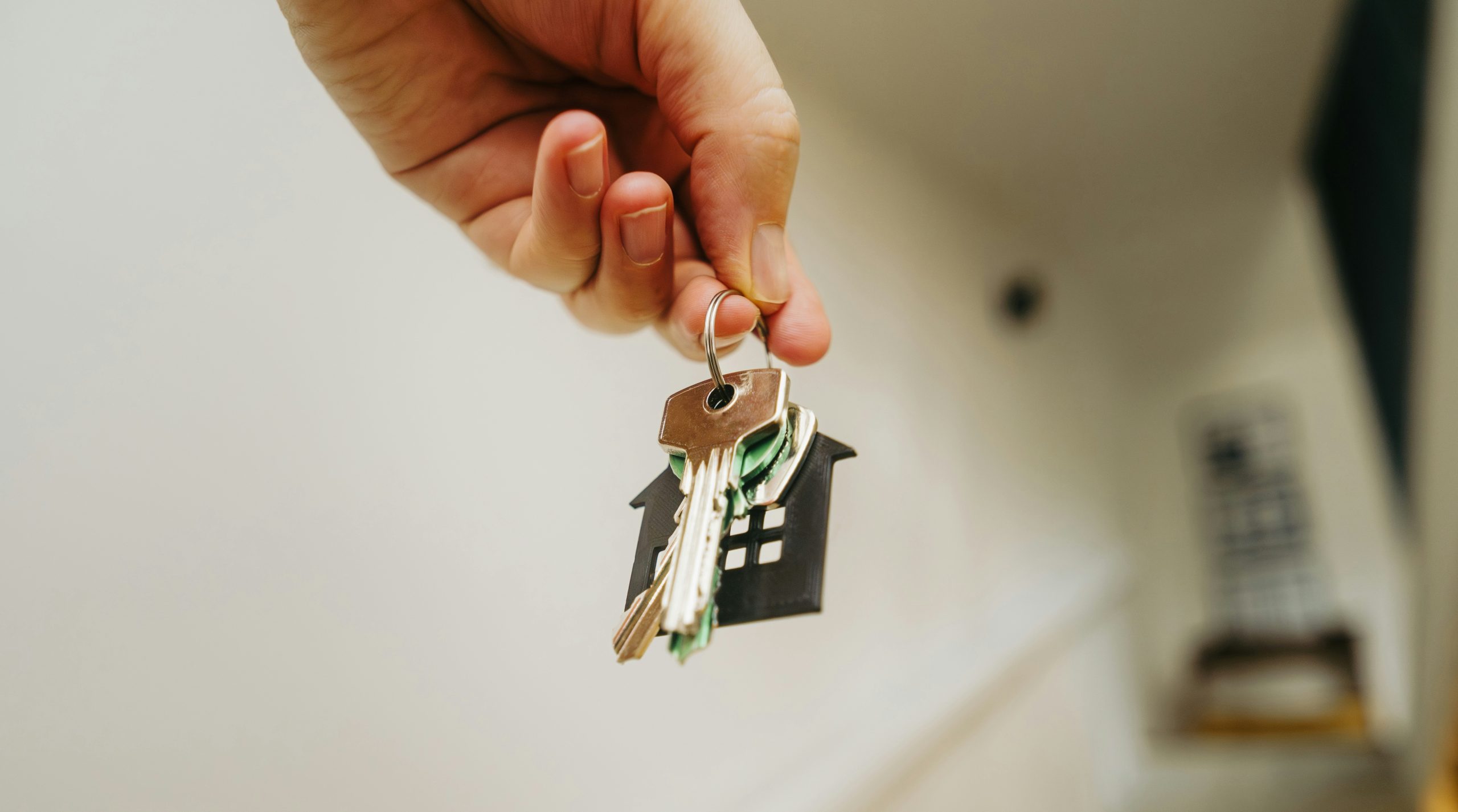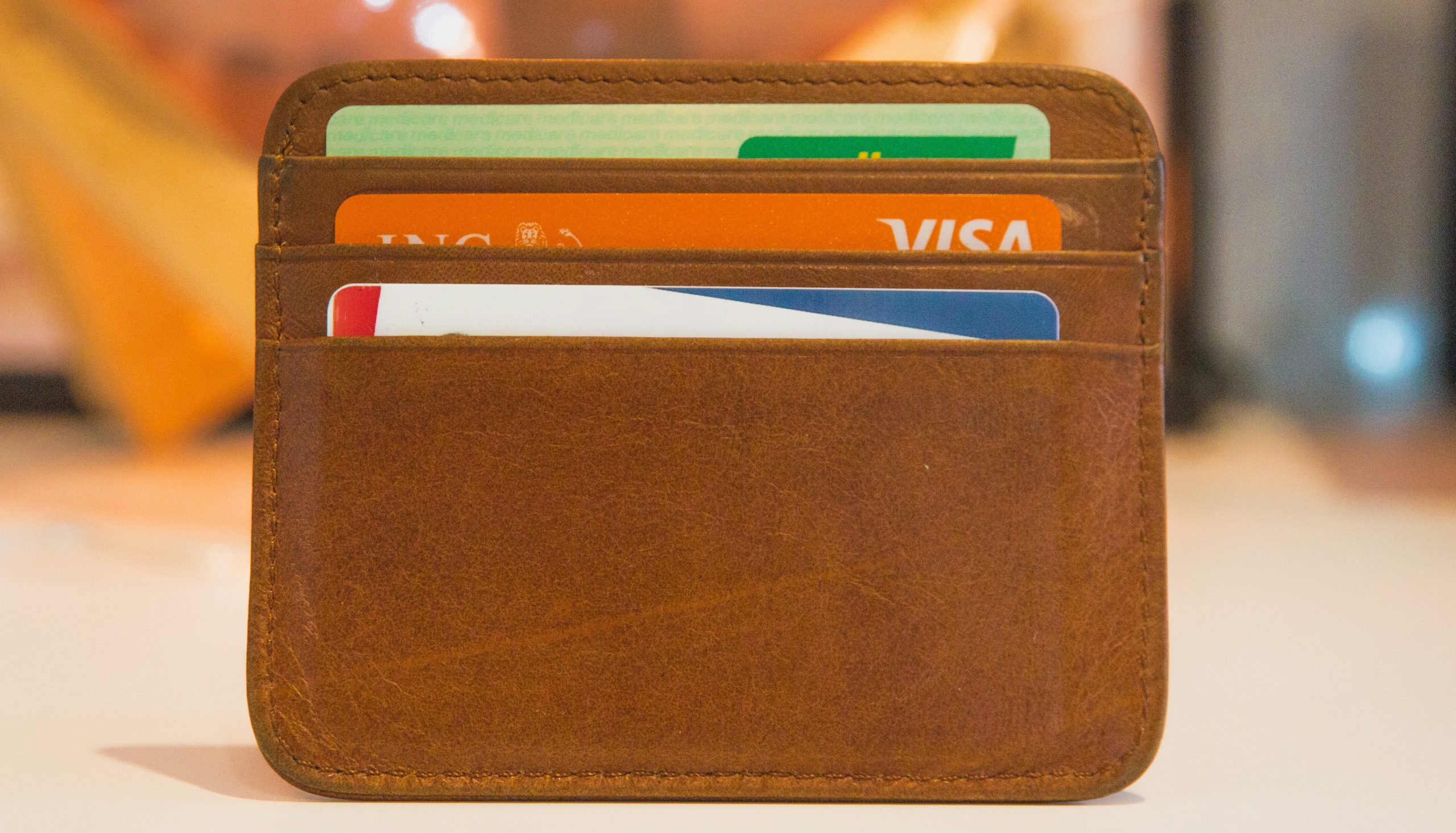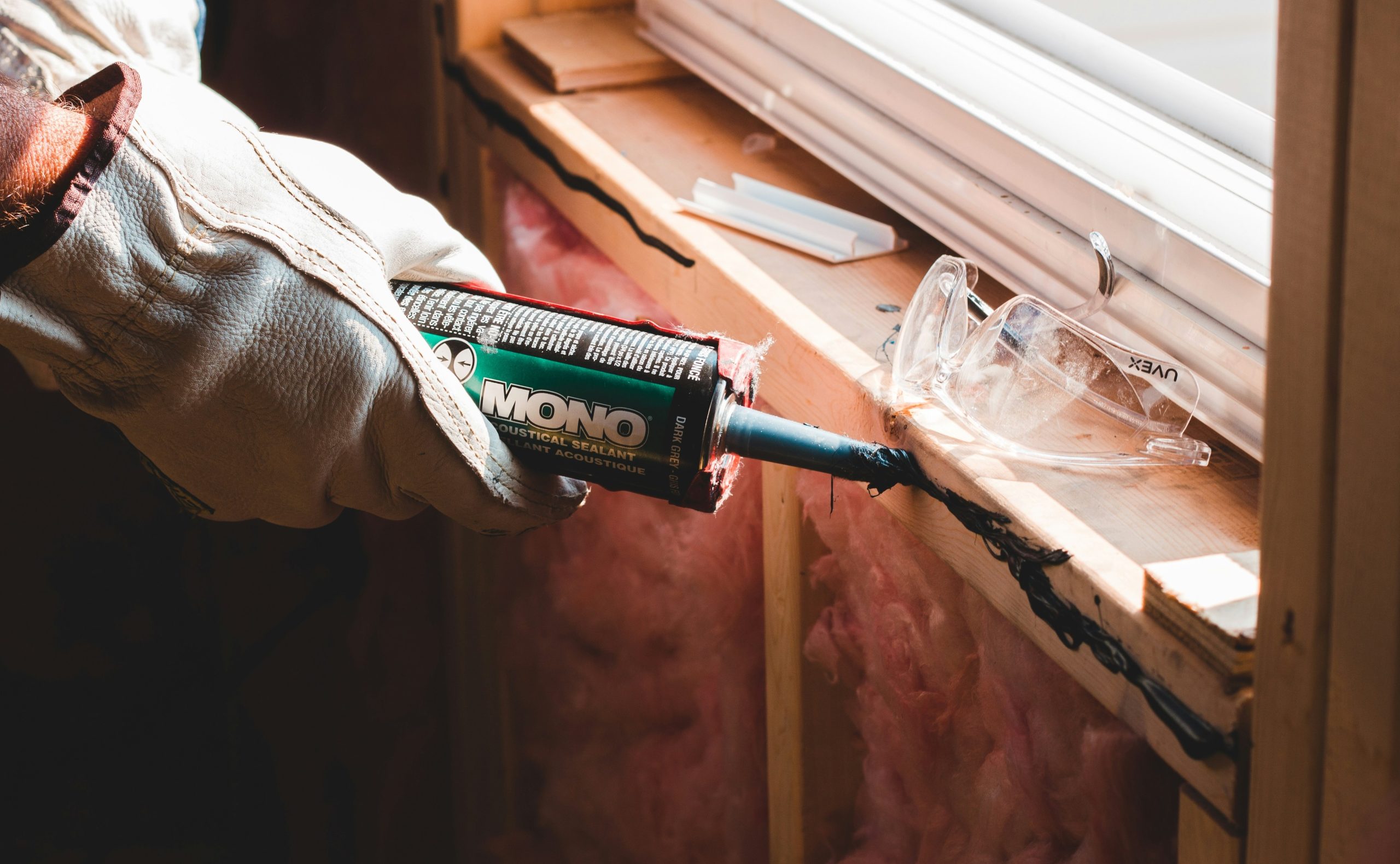Palatka, The Center of A Wheel

The Importance Of Getting Pre Approved

-
Shows You’re a Serious Buyer
-
A pre-approval letter from a lender proves to sellers and realtors that you’ve been vetted and can secure financing up to a specific amount. In competitive markets, this can make your offer stand out—sellers often prioritize buyers who are pre-approved over those who aren’t.
-
-
Defines Your Budget
-
Pre-approval gives you a clear ceiling on what you can borrow based on your income, credit, and debt. This prevents you from wasting time on homes outside your range and helps you plan for down payments and closing costs.
-
-
Speeds Up the Process
-
Since the lender has already verified your financials, pre-approval shortens the time between making an offer and closing. Much of the underwriting groundwork is done, reducing delays once you find a home.
-
-
Strengthens Negotiation Power
-
Sellers may accept a slightly lower offer from a pre-approved buyer over a higher one from someone unvetted, as it lowers the risk of the deal falling through due to financing issues.
-
-
Avoids Surprises
-
The process uncovers potential red flags—like a low credit score or high debt-to-income ratio—before you’re deep into a purchase. You can fix issues early rather than scrambling later
______________________________________________________________________________________________
Why Pre-Approval Trumps Pre-Qualification
- Commitment Level: Pre-approval is a lender’s promise (pending property appraisal), while pre-qualification is more like a “maybe.” If you’re pre-qualified and later can’t secure a loan, your offer could collapse, wasting time and potentially losing earnest money.
- Clarity: Pre-qualification might overestimate your borrowing power, leading you to shop for homes you can’t actually afford. Pre-approval aligns expectations with reality.
- Market Edge: In a hot market with multiple offers, pre-qualification won’t impress sellers—they want assurance the deal will close. Pre-approval signals you’re ready to move forward
-
La Cuisine, Worth The Drive To Ocala!

If you’re a serious “foodie”, then you have to visit La Cuisine in Ocala, Florida—a real gem of a place that’s got history, charm, and some downright fabulous food. Grab a seat, and let’s dig in!
A Little History to Start
La Cuisine French Restaurant opened its doors in 2009, right in the heart of Ocala’s historic downtown. It was brought to life by owners Patrice Perron and Elodie Gattacieca, who wanted to sprinkle a bit of Parisian magic onto this Florida town. Patrice, with his French roots, and Elodie, his partner in this culinary adventure, set out to create a spot that feels like a cozy bistro you’d stumble upon in France. Since then, it’s become a beloved fixture, earning accolades like a spot in Florida Trend magazine’s Golden Spoon Hall of Fame after racking up nine straight awards by 2019. That’s no small feat—it’s a testament to their consistency and love for what they do.
The location itself adds to the story. Nestled at 48 SW 1st Avenue, it’s surrounded by the charm of Ocala’s old brick buildings and tree-lined streets. Downtown Ocala has that classic Southern vibe, but La Cuisine brings a worldly twist, making it a standout in a town known more for horses than haute cuisine.
The Charm That Keeps You Coming Back
Step inside La Cuisine, and you’re hit with this warm, welcoming vibe that’s hard to resist. Folks often say it feels like dining in a friend’s home—if that friend lived in a chic French bistro, that is. The decor’s got those bright red walls that pop, wooden accents, and art that gives it a touch of elegance without feeling stuffy. It’s casual yet refined, like a place where you can celebrate an anniversary or just enjoy a Tuesday night out.
The atmosphere’s got a little something extra, too—live music often fills the air, with French tunes or soft piano notes setting the mood. Picture yourself sipping a glass of wine, the glow of soft lighting around you, and maybe a handwritten note on your table if it’s a special occasion. That’s the kind of thoughtful touch they’re known for. It’s not just a meal; it’s an experience that makes you forget you’re still in Florida—some say it’s more like New York or Paris.
The Fabulous Food—Oh, Where to Begin?
Now, let’s talk about the star of the show: the food. La Cuisine is all about authentic French cuisine with a modern twist, and they don’t mess around when it comes to quality. Everything’s made in-house with fresh, high-quality ingredients, cooked up by chefs who know their way around a French kitchen. The menu’s got classics that’ll make your taste buds sing, and it’s varied enough to suit different cravings and budgets.
Start with the escargot—folks rave about it, saying it’s some of the best they’ve ever had, even compared to France itself. Served in garlic butter with crusty bread to soak it all up, it’s a little plate of heaven. Or maybe the French onion soup, rich and cheesy, just like it should be. My favorite the foie gras, it’s other-worldly. For mains, the Beef Bourguignon is a fan favorite—tender, slow-cooked beef in a red wine sauce that’s pure comfort. The Duck à l’Orange is another standout, with its crispy skin and that zesty orange sauce that balances sweet and savory just right. And if you’re into seafood, the Grouper Meunière’s got a light, buttery finish that’s spot-on.
Don’t skip dessert— the Crème Brûlée is a must, with that perfect crackly top and creamy custard underneath. They’ve got a flourless chocolate torte, too, if you’re in a chocolate mood. Pair it all with a glass from their extensive wine list, and you’re in for a treat. The staff’s great at recommending wines to match your meal, so don’t be shy about asking. Oh, and the soufflé is to die for!
What Folks Say
People love this place, and it’s easy to see why. It’s got a 4.8-star rating on OpenTable from over 2,200 reviews, and Tripadvisor ranks it high among Ocala’s 500+ restaurants. Diners call it a “hidden gem,” praising the service—servers like Kyle, Lola, and Ryan get shoutouts for being attentive and knowledgeable. It’s the kind of spot where you feel taken care of, whether it’s a romantic date or a family brunch (yep, they do a killer Sunday brunch from 11 a.m. to 2 p.m.).
Sure, it’s not the cheapest spot in town—fine dining rarely is—but most say it’s worth every penny for the quality and experience. A few folks have griped about small portions or the occasional salty dish, but that’s rare amid the sea of glowing reviews.
Wrapping It Up
La Cuisine’s got a special mix of history, charm, and food that’s tough to beat. It’s been a cornerstone of Ocala’s dining scene for over 15 years now, blending French flair with Southern hospitality. Whether you’re a local or just passing through, it’s the kind of place that leaves you with a full belly and a big smile. So, next time you’re in Ocala, why not swing by? I’d love to hear what you think, buddy—maybe we can swap stories over a virtual glass of wine sometime! What’s your favorite kind of cuisine, anyway?
location location location

Let’s talk about what’s driving your home’s value in Palatka, and it all starts with location—hands down the biggest piece of the puzzle. You can redo your kitchen or slap on a new roof, but you can’t pick up your house and move it somewhere else, right? In Putnam County, where you’re at really shapes how your place appreciates, especially in 2025 with all the shifts happening around here. Let’s dive into what that means for you.
First up, how close are you to the action—jobs and growth? Palatka’s got that sweet spot—close enough to Jacksonville’s buzz, about an hour away, but still cheaper. That’s why Putnam’s been picking up steam. Take the St. Johns River corridor—businesses like Georgia-Pacific’s mill keep jobs flowing, and homes near those hubs have been climbing. County-wide, median prices shot up 106% from 2016 to 2020—$65,000 to $134,000—and kept rising to $250,000 by mid-2024. If you’re near downtown Palatka or off Highway 17, you’re in that growth zone. What’s your commute like? Any big employers or new projects popping up nearby?
Schools are a huge draw too, especially for families. Putnam’s got some solid spots—like Kelley Smith Elementary or the new Palatka Intermediate coming in 2026 for grades 3-6. Homes near those zones pull a premium. Look at Crescent City—good schools there keep values ticking up 3-4% a year. Even if you don’t have kids, buyers do, and they’ll pay extra to stay in bounds. How’s your school district? We can check the ratings—anything above an 8 out of 10 is a magnet for appreciation.
What about the lifestyle perks? Palatka’s got that riverfront charm—St. Johns River is a gem. Homes along the water, like in East Palatka, can fetch $300,000 easy, growing 5% yearly because people love the view and boating life. Ravine Gardens State Park’s another win—those azaleas pull visitors, and nearby homes get a 4-5% bump from the traffic. If you’re walkable to downtown’s murals or the Riverfront Park, that’s a bonus—buyers are paying 5-7% more for that vibe in 2025. What’s your neighborhood’s hook? Anything cool within a stroll?
Infrastructure’s a game-changer here too. State Road 100’s a hot topic—accidents are up, but the county’s new safety task force might mean upgrades soon. If your place is off a well-connected road like Highway 19 or near the new Palatka Primary school site, you could see a lift—think 5-10% when those projects hit. The river’s a lifeline too—properties with dock access are gold. Any road or transit buzz near you lately?
Safety’s key in Putnam. Palatka’s got safe pockets—think Peniel or the west side—where values hold steady at 3-4% growth. But some spots can drag down nearby prices. Sheriff DeLoach is cracking down, which could stabilize things. How’s your area feel—quiet or on the upswing?
Here’s a 2025 twist: climate’s hitting hard. Putnam’s got flood risks—8% of properties could see severe flooding in the next 30 years, especially near the river or low spots off Silver Lake. Insurance is spiking—up 40% in some cases—so dry land like the Peniel hills is winning, up 4-5% while riverfront slows to 2%. Wildfire’s a 99% risk county-wide, but it’s manageable. Where’s your place sit—high and dry or closer to the water?
And that Palatka charm? Historic homes downtown—like the Bronson-Mulholland House vibe—pull 4-6% yearly because they’re rare. Interlachen’s lake appeal or Welaka’s fishing rep add that extra juice too. If your spot’s got old Florida oaks or a story, buyers eat it up. What’s your property’s personality?
So, Putnam’s got legs—median sales hit $250,000 last year, still climbing slow at 2-3% in 2025. Palatka’s river life, job proximity, and that small-town feel keep it in play. Your location’s the foundation—everything stacks on it.
Other Closing Costs Of Buying A House Besides The Mortgage

Closing Costs: These are fees paid at the closing of the transaction to finalize the sale. They typically range from 2% to 5% of the home’s purchase price and include:
Loan Origination Fees: Charges from the lender for processing the mortgage.
Appraisal Fee: Cost to assess the home’s value (usually $300–$500).
Title Insurance: Protects against ownership disputes (one-time fee, often $1,000+ depending on the property value).
Escrow Fees: Paid to the escrow company for handling the transaction.
Recording Fees: Charges for registering the sale with local government.
Attorney Fees: If required in your state, for legal oversight of the closing.
Home Inspection: Before closing, a professional inspection is highly recommended to check for structural or system issues. This typically costs $300–$600, depending on the home’s size and location.
Property Taxes: You may need to prepay a portion of property taxes at closing, depending on the timing of the sale and local tax schedules. This can vary widely by region.
Homeowners Insurance: Lenders require proof of insurance before closing. The first year’s premium (often $800–$2,000+, depending on location and coverage) is typically paid upfront HOA Fees (if applicable): If the property is in a homeowners association, you might owe prorated dues at closing or an initiation fee, which can range from a few hundred to thousands of dollars. Utilities and Setup: Setting up water, electricity, gas, internet, etc., may involve deposits or connection fees, often totaling $100–$500. Miscellaneous Fees: Depending on your situation, you might encounter smaller costs like notary fees, courier charges, or pest inspections (e.g., termite checks, often $50–$150) For a practical example, let’s say you’re buying a $300,000 home. Excluding the mortgage, your costs might look lik
Improving Your Credit Score

-
Set up automatic payments through your bank.
-
Use calendar reminders to avoid missing deadlines.
-
Paying down balances regularly.
-
Requesting a higher credit limit (but don’t increase spending)
________________________________________
3. Maintain Older Credit AccountsThe length of your credit history contributes to your score. Older accounts in good standing show a longer track record of responsible credit use. To benefit:-
Keep your oldest credit cards or accounts open and active, even if you don’t use them often (a small, occasional purchase can suffice).
-
Avoid closing accounts unless they carry high fees or pose a risk.
___________________________________4. Diversify Credit Types (Wisely)Having a mix of credit types—like credit cards, installment loans (e.g., auto or personal loans), or a mortgage—can positively impact your score. However:-
Don’t open new accounts just for variety; only take on credit you need and can manage.
-
Focus on maintaining existing accounts well.
__________________________________5. Limit New Credit ApplicationsEach time you apply for new credit, a hard inquiry is added to your credit report, which can temporarily lower your score. To minimize this:-
Apply for new credit sparingly, only when necessary.
-
Shop for loans (like a mortgage or car loan) within a short period (e.g., 14–45 days), as multiple inquiries for the same purpose may count as one.
_______________________________6. Check and Correct Credit Report ErrorsMistakes on your credit report—like incorrect late payments or accounts that aren’t yours—can drag your score down. Take these steps:-
Request a free credit report from each of the three major bureaus (Equifax, Experian, TransUnion) annually at AnnualCreditReport.com.
-
Review it for errors and dispute inaccuracies with the bureau directly, providing supporting documentation if needed
_____________________________Final TipsConsistency is key—improving your credit score takes time, but these habits will steadily build it up. Avoid drastic negatives like collections or bankruptcies by managing debt responsibly. By following these steps, you’ll enhance your creditworthiness and open doors to better financial opportunities.
-
Visiting Putnam County, Part 2

-
Crowds: Low. Perfect for a peaceful getaway.
-
Events: Local art walks, small farmers’ markets, and occasional riverfront concerts.
-
Activities: Hiking at Lake George Conservation Area, antiquing in Crescent City, or visiting the St. Johns River Center for wetland education.
-
Real Estate Tip: Fall’s great for buyers—sellers cut prices 1-3% (e.g., $5K off a $200K home). Focus on homes sitting 30+ days for negotiation leverage. Days on market average 30-50 days.
-
Comfortable weather and minimal crowds.
-
Budget-friendly lodging and dining.
-
Ideal for hiking, biking, and cultural exploration.
-
Hurricane season continues (pack a rain jacket).
-
Fewer big festivals than spring.
-
Some rural attractions may close early.
-
Crowds: Very low. Locals dominate the scene.
-
Events: Holiday events (e.g., Palatka Christmas parade), small craft fairs.
-
Activities: Fishing at Welaka, exploring Ocala National Forest (20 mins from Interlachen), or touring the Palatka Golf Club.
-
Real Estate Tip: Winter’s a buyer’s market. Listings drop 10-20%, and homes sit 45-60+ days. Pitch motivated sellers to retirees eyeing Palatka’s affordability vs. St. Augustine.
-
Mild weather and cheapest rates.
-
Quiet trails and uncrowded attractions.
-
Strong retiree appeal (highlight for clients).
-
Fewer events and limited attraction hours.
-
Cooler nights (lows in the 40s) require layers.
-
Less vibrant than spring’s bloom season.
Visiting Putnam County, Part 1

-
Crowds: Moderate to high, especially during festivals. Book accommodations early (try the Sprague House Bed & Breakfast in Crescent City or hotels in Palatka).
-
Events: Florida Azalea Festival (March), Blue Crab Festival (May), and smaller events like the Mug Race (world’s longest river sailboat race, early May).
-
Activities: Kayaking on the St. Johns River Blueway, hiking the Palatka-to-St. Augustine State Trail, or birdwatching at Rice Creek Conservation Area (spot bald eagles and red-shouldered hawks).
-
Real Estate Tip (for Richard): Spring’s peak home-buying season. Inventory spikes 20-30%, and homes sell in 20-30 days. Highlight riverfront properties or homes near Ravine Gardens for buyers wanting that springtime vibe.
-
Stunning azalea blooms and ideal weather.
-
Major festivals bring community energy.
-
Perfect for outdoor activities (fishing, paddling, hiking).
-
Festival weekends get busy; parking in downtown Palatka can be tight.
-
Higher accommodation rates (expect $100-$150/night for hotels).
-
Pollen may bother allergy sufferers.
-
Crowds: Low to moderate. Fewer tourists than spring, but locals hit the river on weekends.
-
Events: Bostwick Blueberry Festival (June), Fourth of July fireworks in Palatka.
-
Activities: Boating on Lake George, exploring Rice Creek Swamp (home to Florida’s seventh-largest cypress tree), or biking the Cross Florida Greenway.
-
Real Estate Tip: Summer’s a seller’s market for waterfront homes. Highlight hurricane-proof features (impact windows, new roofs) to ease buyer concerns. Days on market stretch to 25-40 days.
-
Fewer crowds, more relaxed vibe.
-
Great for water-based activities and rural exploration.
-
Affordable lodging (~$80-$120/night).
-
Hot and humid; bring sunscreen and hydration packs.
-
Hurricane season starts—check forecasts and avoid flood-prone areas.
-
Some attractions (e.g., historical tours) may have limited hours.
Two More Important Inspections

-
Building Code Compliance: Was your home built or renovated under strict wind-resistant building codes? Homes built after March 1, 2002, often get better ratings because codes got tougher after Hurricane Andrew in 1992.
-
Roof Covering: What’s your roof made of (e.g., asphalt shingles, concrete tiles, metal)? They check its condition, age, and whether it meets current standards. Newer roofs with proper permits score higher.
-
Roof Deck Attachment: This is about how the roof deck (usually plywood or OSB) is nailed to the rafters or trusses. They look at nail type (e.g., 8D nails are better than 6D) and spacing (6 inches apart is ideal). Better attachment means less chance of your roof flying off.
-
Roof-to-Wall Connection: How is the roof tied to the walls? Inspectors check for things like hurricane straps, clips, single wraps, or double wraps (stronger is better). A weak connection, like just toenails, won’t score you many points.
-
Roof Geometry: The shape of your roof matters. Hip roofs (sloped on all sides) are more aerodynamic and resist wind better than gable roofs (with vertical ends). Hip roofs often get the best credits.
-
Secondary Water Resistance (SWR): Is there a self-adhering underlayment (like peel-and-stick) beneath your shingles? This helps prevent water from sneaking in if shingles get blown off.
-
Opening Protection: Are your windows, doors, and garage doors impact-resistant or protected by hurricane shutters? They check for ratings like Miami-Dade or ASTM standards. Everything needs to be protected to get the full credit—no partial points here.
-
Insurance Savings: In states like Florida, insurers are required to offer discounts if your home has wind-resistant features. Savings can range from 3% to 55% on the wind portion of your premium—potentially hundreds or thousands a year, depending on your home and location. A good report can pay for itself quickly.
-
Storm Preparedness: It shows you what’s solid and what needs work. If your roof-to-wall straps are weak, you can fix them before a hurricane hits.
-
Property Value: A strong wind mitigation report can make your home more attractive to buyers, especially in storm-prone areas.
-
Cost: Typically $75–$150, depending on your area and inspector.
-
Validity: Reports are good for 5 years unless you make major changes (like a new roof) or switch insurers, who might want a fresh one.
-
No Penalty: A bad report won’t raise your premiums—it just means fewer discounts. So there’s no downside to getting one.
-
Prep Tip: Clear attic access and have any permit docs (for roofs, windows, etc.) ready. If you’ve got shutters, make sure they’re accessible, even if stored.
-
Areas Inspected:
-
Interior: Baseboards, window sills, door frames, cabinets, and any exposed wood. They look for tiny holes, sawdust-like frass, or mud tubes (termite highways).
-
Exterior: Siding, eaves, decks, fences, and wood touching the ground. They check for rot, insect trails, or weakened wood.
-
Attic and Crawlspaces: These are hotspots for termites and beetles, so inspectors poke around for damage or live bugs.
-
Basement/Garage: Any damp or dark spots where fungi or insects might set up shop.
-
-
What They Look For:
-
Termites: Subterranean and drywood termites are the biggies. Signs include mud tubes, discarded wings, or hollow-sounding wood.
-
Carpenter Ants: These guys carve out wood for nests, leaving frass that looks like sawdust.
-
Wood-Boring Beetles: Powderpost beetles and others leave tiny exit holes and fine powder.
-
Fungi/Dry Rot: Discolored, soft, or crumbly wood from moisture damage.
-
-
Report: In places like Florida, the report follows a state-mandated form (e.g., Form NPMA-33 or Florida’s equivalent). It notes any active infestations, past damage, or conditions that could invite pests (like wood-soil contact or leaky pipes). If treatment happened before, they’ll mention it.
-
Protect Your Investment: Termites alone cause billions in damage yearly in the U.S. Catching them early can save you from costly repairs.
-
Sale Requirement: Many lenders or buyers require a WDO report before closing to ensure the home isn’t a termite buffet. In Florida, it’s often mandatory for financed purchases.
-
Peace of Mind: Even if not required, knowing your home is pest-free (or what to fix) is worth the small cost.
-
Insurance Angle: Some insurers want to know about WDO risks, especially if damage could weaken your home’s structure.
-
Cost: Usually $100–$200, but can be bundled with other inspections for less.
-
Who Pays?: In home sales, it’s negotiable—sometimes the seller, sometimes the buyer, depending on the contract.
-
Not a Guarantee: It’s a snapshot in time. Termites can show up later, so regular checks (every 1–2 years) are smart in high-risk areas.
-
Prep Tip: Clear clutter from crawlspaces, attics, and exterior walls so the inspector can see everything. Fix any moisture issues (leaky faucets, poor drainage) to reduce pest appeal.
-
New Homes: Even a 2020-built home can have WDO issues if construction was shoddy or materials were compromised, so don’t skip it thinking “new = safe.”
The Lowdown On Home Inspections

-
Peace of Mind: You’ll know exactly what you’re getting into. No one wants to buy a house only to find out the wiring’s older than your grandma’s recipe for pecan pie.
-
Negotiation Power: If the inspector finds issues, you can ask the seller to fix them, lower the price, or give you a credit. Cha-ching!
-
Planning Ahead: Even if the house is solid, the inspection report gives you a roadmap for future maintenance. That’s gold for budgeting.
-
Exterior: Roof, siding, gutters, windows, and grading around the foundation. They’ll check if water’s pooling where it shouldn’t—nobody wants a soggy basement.
-
Structure: Foundation, walls, and floors. Cracks or shifts could mean trouble, especially in our Florida clay soil.
-
Plumbing: Pipes, fixtures, water heater, and drainage. They’ll make sure your showers stay hot and your toilets don’t back up.
-
Electrical: Wiring, outlets, panels, and grounding. Outdated systems (like knob-and-tube wiring) could be a fire hazard.
-
HVAC: Heating and air conditioning systems. In Palatka’s steamy summers, a working AC is non-negotiable.
-
Interior: Ceilings, walls, floors, doors, and stairs. They’ll look for water stains, mold, or signs of critters.
-
Attic and Crawlspace: Insulation, ventilation, and any sneaky leaks or pests hiding out
- Appliances: If they’re staying with the house, the inspector might test the stove, dishwasher, or built-in microwave.
- Pro tip: If you’re worried about something specific—like termites, radon, or a septic system—you can add specialized inspections. In Palatka, termite inspections are super common since those pesky critters love our warm climate.
-
Buyers: If the house is in great shape, awesome—you’re ready to move forward! If there are issues, you’ve got options: ask the seller to make repairs, request a price cut, or walk away if it’s a dealbreaker. Your agent (hey, that’s me!) will help you negotiate.
-
Sellers: If the buyer’s inspection flags problems, they might ask for fixes or concessions. You can agree, counteroffer, or say “as-is” if you’re firm on price. A pre-listing inspection helps you avoid surprises here.
________________________
-
Pick a Great Inspector: Ask for recommendations (I’ve got a list of trusted pros in Palatka). Look for someone certified by groups like ASHI or InterNACHI.
-
Be There: Tag along for the inspection if you can. It’s a chance to learn about the house and ask questions.
-
Don’t Panic: A long report doesn’t mean the house is a dud. Focus on the big stuff and talk it over with your agent.
-
Prep the House: Clear clutter, make sure the attic and crawlspace are accessible, and replace burnt-out lightbulbs. A tidy house makes a great impression.
-
Fix Small Stuff: Tighten loose doorknobs, patch minor wall dings, and clean out gutters. It shows you care about the place.
-
Be Honest: Disclose any known issues upfront. It builds trust and avoids headaches later.
_____________________


 Facebook
Facebook
 X
X
 Pinterest
Pinterest
 Copy Link
Copy Link